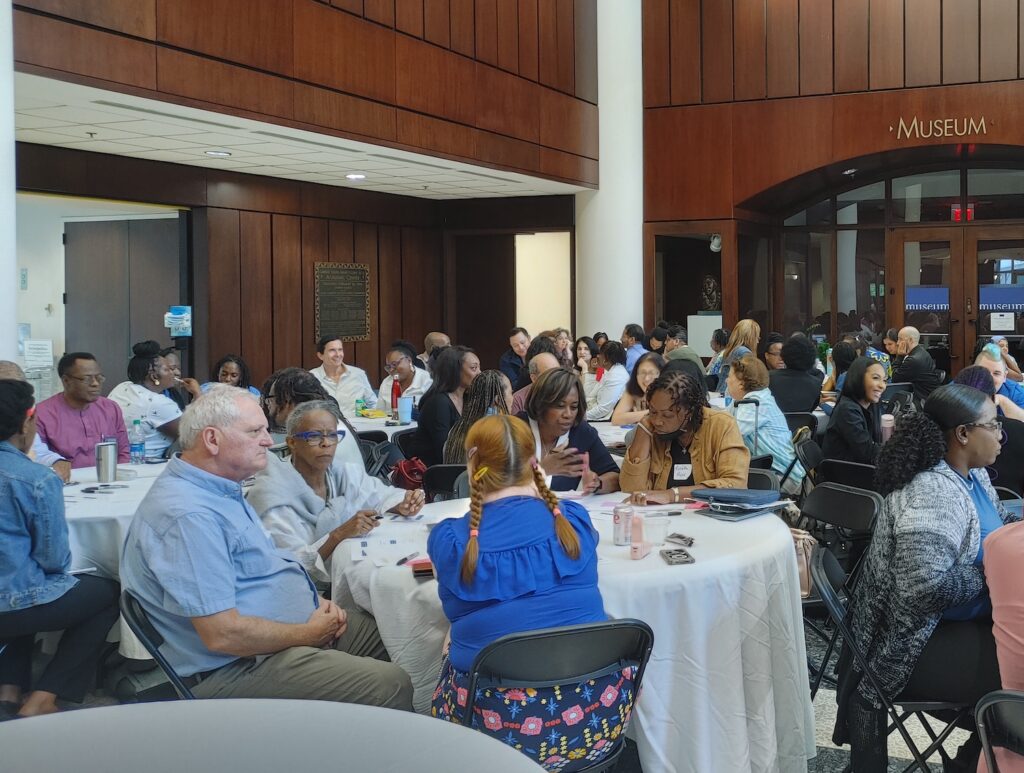Appreciative Inquiry in Action
A few weeks ago I got the chance to see Appreciative Inquiry in action in Atlanta, as I joined the Spelman College faculty for a mini Strategic Doing session. Spelman, a women’s liberal arts college, is one of the country’s premier HBCUs. The purpose of the session was to identify ways in which the college and the new Center for Black Entrepreneurship could work together over the coming year. The Center’s director, Grant Warner, was the co-leader of the Pathways to Innovation team at Howard University. In that project the Lab helped 50 universities embed entrepreneurship and innovation into undergraduate engineering. It’s exciting to work with Grant on another project with great prospects for success.
Appreciative inquiry and Strategic Doing

In our Strategic Doing trainings, one of the first skills we teach is how to construct an appreciative framing question. This skill borrows from Appreciative Inquiry, a field pioneered by David Cooperrider. In a nutshell, Appreciative Inquiry teaches us to start from (appreciate) what we do have, rather than focusing on what we don’t have. In other words, we get rid of the phrase “if only.” If only we had money. If only we had staff. If only we had political connections.
Good framing questions are appreciative, but they are also open – that is, there is room for many different possibilities. We’ve noticed over the years that creating questions is easier for some people than others. People from fields where there is usually one right answer often find it harder. Others, who work in environments where there is uncertainty or unpredictability, come to it more naturally.
The Spelman faculty were in that latter group – we did an exercise “flipping” statements into good appreciative questions, and the questions that they developed were some of the strongest I’ve ever heard. On my flight home, I reflected on why that was. There’s no definitive answer, but I can’t help but wonder if working in an HBCU – where one of the defining characteristics of both the institution and the students is resilience – develops strong appreciative inquiry “muscles.”
Using appreciative inquiry for effective conversations
To take that thinking a bit further – how can organizations build those muscles so that asking appreciative questions becomes the norm rather than the exception? I can think of three:
- modeling: often leaders think they need to come into conversations with answers, not questions. Changing this habit sends a critical signal.
- practicing: creating appreciative questions in many contexts – even in very low-stakes situations – lets people build skills that can be deployed more widely.
- reflecting: taking time to appreciate (of course) the richness of conversations that appreciative questions create reinforces the value of framing work in this way.
Our Strategic Doing work with organizations starts by talking about what the challenges are and then exploring how we might flip those into strong questions. If your organization needs help in guiding those conversations, reach out to us.

Liz shepherds the expansion of the Lab’s programming and partnerships with other universities interested in deploying agile strategy tools. A co-author of Strategic Doing: 10 Skills for Agile Leadership, she also focuses on the development and growth of innovation and STEM education ecosystems, new tool development, and teaching Strategic Doing.
